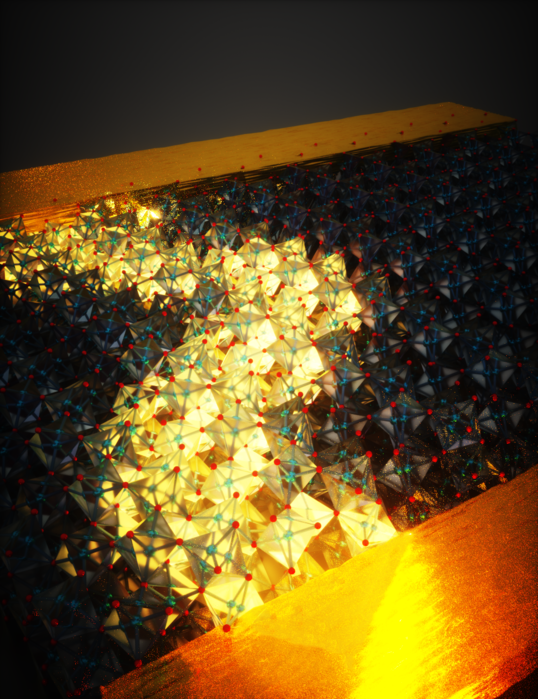Vanadium Dioxide (VO2), a substance used in electronics, has been shown by EPFL researchers to be capable of “remembering” the whole history of prior external stimuli. There may be more materials, but this is the first one discovered as having this feature.
 Vanadium Dioxide (VO2), a compound capable of “remembering” the entire history of previous external stimuli. Image Credit: POWERlab/2022 EPFL.
Vanadium Dioxide (VO2), a compound capable of “remembering” the entire history of previous external stimuli. Image Credit: POWERlab/2022 EPFL.
While conducting research on phase transitions in VO2 for his Ph.D. at EPFL’s Power and Wide-band-gap Electronics Research Laboratory (POWERlab), Mohammad Samizadeh Nikoo uncovered an unexpected discovery. When VO2 is relaxed at room temperature, it enters an insulating phase. However, around 68 °C, it undergoes a sharp insulator-to-metal transition, changing its lattice structure.
According to Samizadeh Nikoo, VO2 typically has a volatile memory, “the material reverts back to the insulating state right after removing the excitation.” He sought to learn how long it takes for VO2 to change states to complete his thesis. After doing many measurements, he discovered a memory effect in the material’s structure, which changed the course of his research.
An Unexpected Discovery
Samizadeh Nikoo used an electric current to experiment on a VO2 sample.
“The current moved across the material, following a path until it exited on the other side,” he adds. The sample was heated by the current, which changed the condition of the VO2. The substance then went back to its initial state when the current had passed. After giving the material a second current pulse, Samizadeh Nikoo discovered that the history of the material had a direct impact on how long it took to change state.
The VO2 seemed to ‘remember’ the first phase transition and anticipate the next. We didn’t expect to see this kind of memory effect, and it has nothing to do with electronic states but rather with the physical structure of the material. It’s a novel discovery: no other material behaves in this way.
Elison Matioli, Professor and Head, POWERlab, École polytechnique fédérale de Lausanne
A Memory of up to 3 Hours
The scientists found that VO2 had a 3-hour memory span for the most recent external stimuli.
The memory effect could in fact persist for several days, but we don’t currently have the instruments needed to measure that.
Elison Matioli, Professor and Head, POWERlab, École polytechnique fédérale de Lausanne
The discovery made by the study team is significant since the memory impact that they witnessed is a fundamental characteristic of the substance itself. Engineers use memory to perform various calculations, and there is a considerable need for materials that could improve computation performance by providing more capacity, speed, and compactness.
All three of these criteria are met by VO2. Furthermore, it differs from traditional materials that store data as binary information dependent on modifying electrical states due to its continuous, structural memory.
To reach their conclusions, the scientists used a variety of measurements. They also validated their results by using the novel technology with different materials at other facilities around the world. The fact that VO2 switches behave exactly like neurons in this discovery perfectly mimics what occurs in the brain.
Journal Reference:
Nikoo, M. S., et al. (2022) Electrical control of glass-like dynamics in vanadium dioxide for data storage and processing. Nature Electronics. doi.org/10.1038/s41928-022-00812-z.